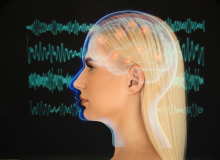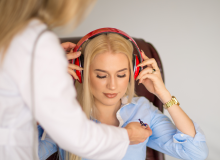
Neurofeedback (NFB), also called neurotherapy or neurobiofeedback, is a brain-based form of biofeedback that uses real-time monitoring of brain activity—most commonly electroencephalography (EEG). NFB helps to learn how to change and self-regulate dysregulated brainwave patterns related to many emotional and behavioral problems. Typically, sensors are placed on the scalp to measure brain waves activity to produce a signal that can be used as feedback to teach self-regulation of brain function.
Feedback received during a session is information on how each brainwave frequency is performing and how the organ might improve upon that performance.
Neurofeedback utilizes our natural instincts of using feedback to learn new developmental skills. Just as with everything we learn (e.g. riding a bike), a beneficial lesson makes a lasting impression.
Neurofeedback is commonly provided using video or sound, with positive feedback for desired brain activity and negative feedback for brain activity that is undesirable.
Just as your brain makes sense of information being fed to it from gravity, it makes sense of the information being conveyed to it by the software. The brain is an organ that processes substantially more information than your mind could handle. Your mind can not even see, hear, smell, taste or consciously feel earth’s gravitational pull, yet your brain is constantly sending neural commands to muscles according to feedback it receives from gravity. Even though your mind wants to understand and even participate in your neurofeedback session, it is your brain that we are training.




